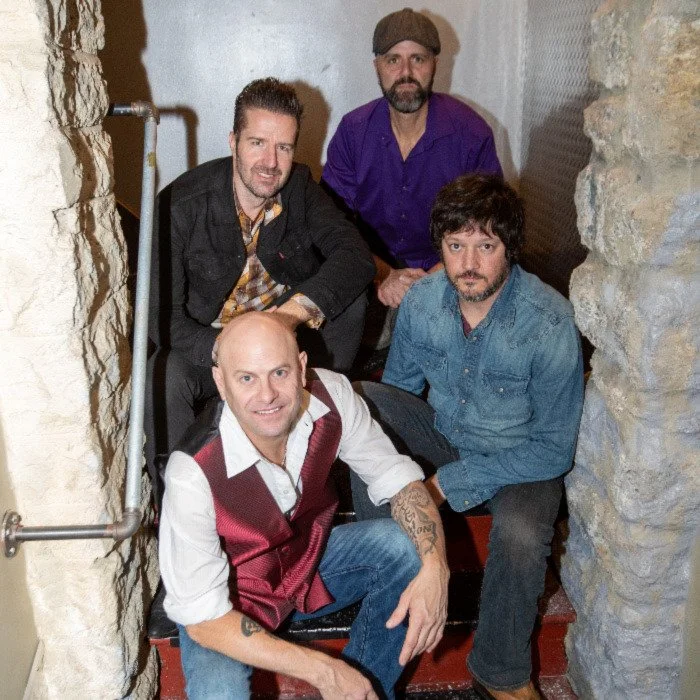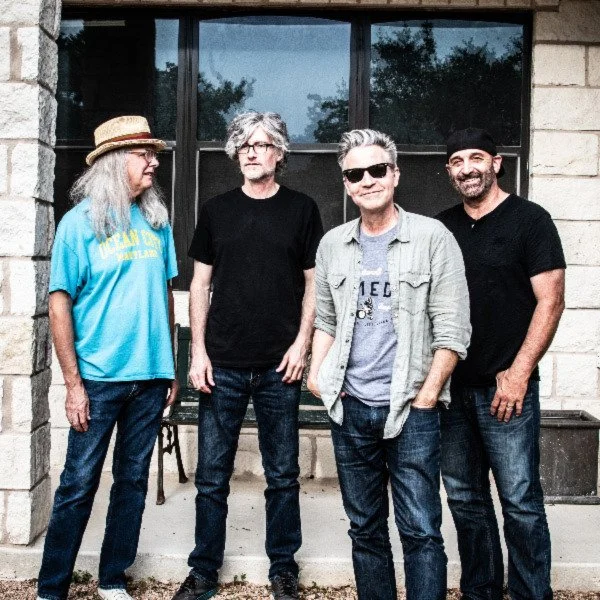Texas has more than its share of proud traditions, but none prouder than the remarkable depth of its pool of storytellers. From Larry McMurtry to Jimmie Dale Gilmore, Cormac McCarthy to Ray Wylie Hubbard, the Lone Star state has been produced a stunning array of folks who’ve used both pen and song to convey tales that are at once universal and redolent of the land of their creation.
With his riveting solo debut, Your Dog, Champ, Brent Best makes a strong case for inclusion in that select group. The Slobberbone frontman has spent the past two decades proving his mettle as a formidable rock frontman, capable of cutting to the quick with a fierce vocal and delivering the sort of sharp-tongued wit that got the band name-checked by Stephen King (who named their “Gimme Back My Dog” one of the three greatest rock songs of all time).
While Your Dog, Champ retains much of that band’s steeliness, Best presents the stories – actually one long and winding story told in a dozen parts – with a disarming simplicity, largely swathed in acoustic instruments and spare arrangements that whisper more than they shout, shimmer more than they glare.
“I come from a background where no matter how much you’re bearing your soul, you can always hide behind this wall of noise,” says Best. “And I didn’t want to do that here. I tried to make it very sparse. At first, I thought it would just be me and a guitar, but I started thinking of things I wanted to add – and who I wanted to bring in to add them. I knew that I wanted things to be quiet, though. I wanted to let the songs breathe.”
And breathe, they do. Accompanied by an impressive cast of players, including Ralph White of the estimable Bad Livers on fiddle, Petra Kelly (Hares on the Mountain, The Angelus) on violin and Andy Rodgers (Boxcar Bandits) on banjo. The players weave a web of sound that’s hypnotic without being overbearing – all the better to underscore Best’s narrative about a family with deep roots and dark secrets, strong bonds and fraying nerves.
“Early on, I jettisoned the idea that this was just a bunch of songs,” the Denton-based singer-songwriter says of the loose narrative that connects the disc’s dark and emotionally stormy songs. “Even though I didn’t go into this intending to write a whole album of things that were connected, it didn’t take me that long to realize that the baby brother in ‘Robert Cole’ shows up again, angry, in ‘Good Man Now.’ A lot of the characters keep returning.”
Best credits his late friend Larry Brown – author of such acclaimed novels as Big Bad Love and Joe – with inspiring him to take his writing in this deeper, darker direction. The influence of what’s come to be called “grit lit” is palpable in songs like the wistful “Aunt Ramona” (which chronicles a road trip with a dying loved one from the perspective of a wide eyed child) and “Daddy Was a Liar” (an unflinching portrait of a paternal figure whose violence resonates long after the fact).
The characters that populate Your Dog, Champ (a title taken from a line in “Robert Cole”) are vivid in the most cinematic of senses. The rueful villain who drives the beautifully bleak “Tangled” (which Best concedes was the hardest of the songs to write) burrows into the memory bank with a headstrong intensity, while the knowing narrator of “Career Day” (a guy who knows all about forking paths) leaves an impression that’d do Raymond Chandler proud.
“I don’t think I could have written these songs 15 years ago, or even ten,” says Best. “Your perspective changes as life goes on. You start to see consequences. Just when you think you have a handle, life throws you a curve.”
That was certainly the case in the making of Your Dog, Champ. Best took his first stab at the recording several years ago, then stepped back, thinking he hadn’t separated himself sufficiently from Slobberbone – which still commands a solid following when reconvening on the road. He shelved that effort, then nearly completed a more fully-realized album that he lost when his hard drive gave out – a disaster he can laugh at now, but one that he admits emotionally sidelined him for a spell.
“I forced myself to go as far as I could with this record,” he says. “When I was signed, there was always something confrontational – it was like ‘you want your album, here it is.’ But with this, I was making it for myself. I didn’t have someone cracking the whip to finish, so I was able to take as long as I wanted and get exactly what I wanted. That got me to dig myself into a hole a few times, but when I got out, it was really worth the trip.”
One spin is all it will take to make you agree that both the trip and the destination really are well worth it.





















